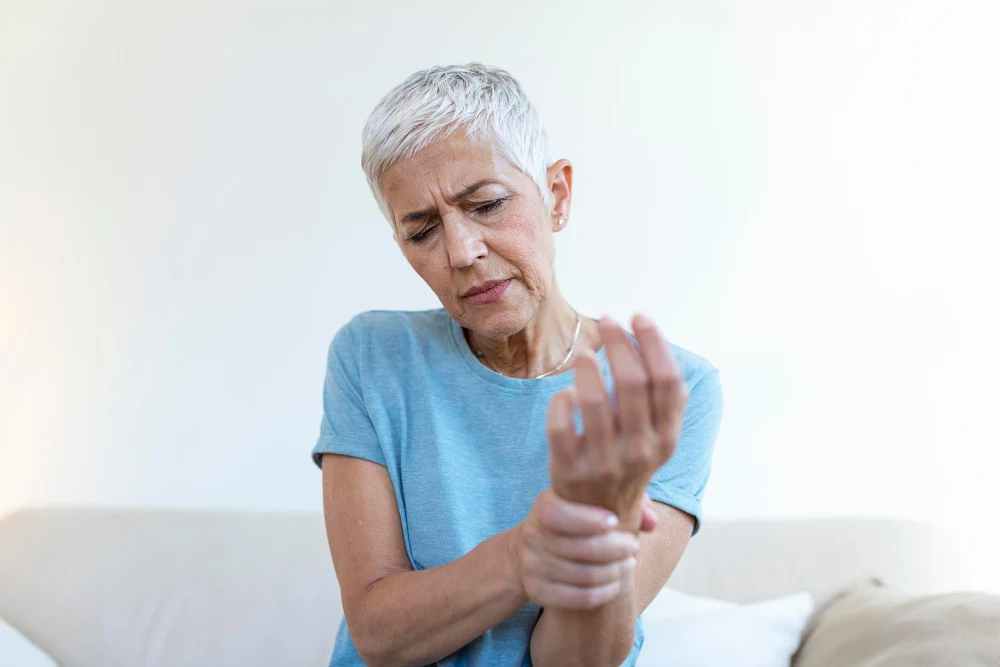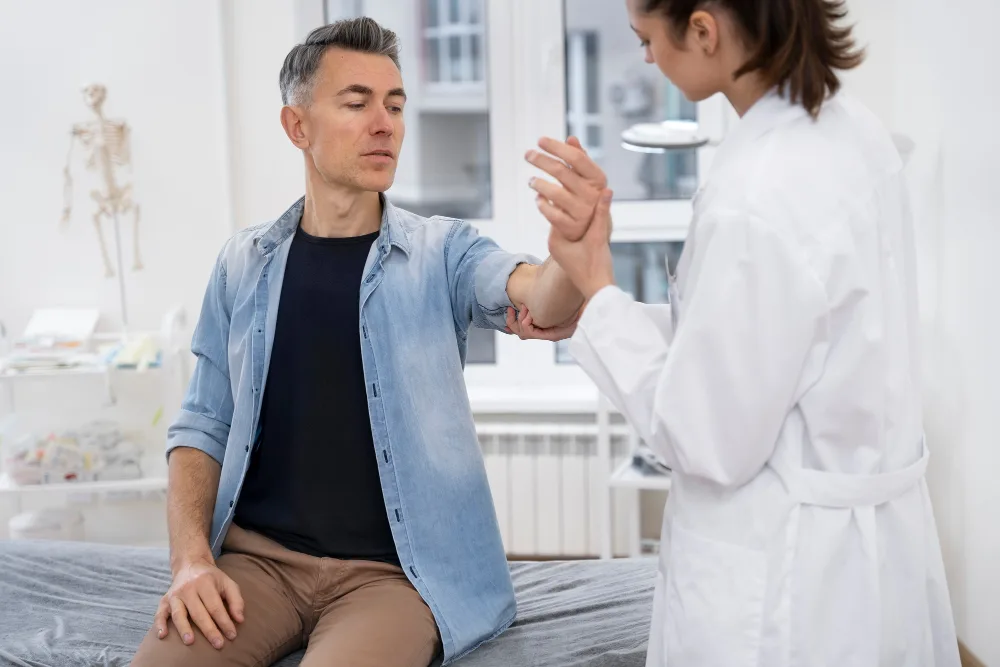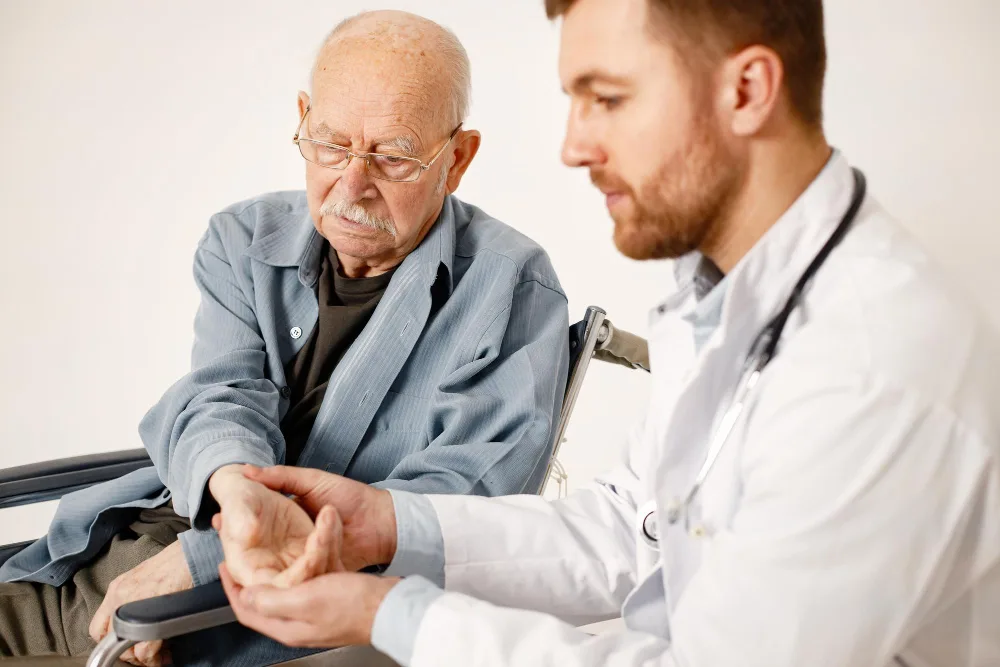Can Arthritis Be Cured?
Category: Orthopedics
Arthritis is a term used for conditions that cause joint inflammation, pain, stiffness, and reduced mobility. It affects millions worldwide, impacting daily activities and quality of life. Many patients often ask, “Can arthritis be cured?” While treatment options have advanced significantly, a permanent cure for arthritis is not yet available. However, with early diagnosis, proper medication, and lifestyle management, symptoms can be effectively controlled.
At Lokmanya Hospitals, patients receive comprehensive care for all types of arthritis. Our experienced arthritis specialists in Pune offer advanced diagnostics, personalized medication plans, physiotherapy, and lifestyle counseling to help patients manage pain, improve joint function, and maintain a fulfilling lifestyle.
Understanding Arthritis
Arthritis is not a single disease but a group of conditions affecting joints. Common types include:
- Osteoarthritis (OA): Degenerative joint disease caused by cartilage wear and tear.
- Rheumatoid Arthritis (RA): Autoimmune condition where the immune system attacks joints.
- Psoriatic Arthritis: Associated with psoriasis, causing joint inflammation and skin flare-ups.
- Gout: Caused by uric acid crystal buildup in joints.
Symptoms vary depending on the type but typically include joint pain, stiffness, swelling, reduced range of motion, and fatigue.
Can Arthritis Be Cured?
Currently, there is no permanent cure for arthritis. However, effective treatment can:
- Reduce inflammation and pain
- Prevent joint damage and deformities
- Improve mobility and quality of life
- Achieve remission in autoimmune forms such as RA
Treatment focuses on managing symptoms, slowing disease progression, and enabling patients to lead active lives. Early intervention significantly improves long-term outcomes.
Treatment Options for Arthritis
1. Medications:
- NSAIDs: Reduce pain and inflammation
- Corticosteroids: Provide short-term relief
- DMARDs and Biologics: Control autoimmune inflammation and prevent joint damage
2. Physiotherapy:
- Strengthens muscles around joints
- Improves flexibility and range of motion
- Reduces stiffness and discomfort
3. Lifestyle Management:
- Balanced diet rich in anti-inflammatory foods
- Regular low-impact exercise
- Weight management to reduce joint stress
- Stress reduction and proper sleep
4. Surgical Options (if needed):
- Joint replacement or repair in advanced stages to restore function
At Lokmanya Hospitals, treatment plans are personalized based on the type and stage of arthritis, ensuring optimal symptom management and joint protection.
Why Choose Lokmanya Hospitals for Arthritis Treatment?
Lokmanya Hospitals is a trusted center for arthritis treatment in Pune, offering comprehensive care from diagnosis to rehabilitation. The hospital’s team of expert arthritis specialists provides advanced treatment options tailored to individual needs, combining medication, physiotherapy, and lifestyle counseling.
With a multidisciplinary approach, cutting-edge technology, and patient-focused care, Lokmanya Hospitals ensures long-term relief and improved joint health. Continuous monitoring, education, and stage-specific management empower patients to control arthritis effectively and maintain mobility and comfort.
Conclusion
While arthritis cannot currently be cured permanently, early diagnosis, appropriate treatment, and lifestyle management can significantly reduce symptoms, prevent joint damage, and improve quality of life.
Lokmanya Hospitals remains a leading center in Pune for arthritis care, providing advanced therapies, expert guidance, and holistic support to help patients manage their condition and lead active, fulfilling lives.
FAQs
1. Can arthritis be completely cured?
No, a permanent cure is not available, but symptoms can be managed effectively.
2. What are the common symptoms of arthritis?
Joint pain, swelling, stiffness, reduced mobility, and fatigue are typical symptoms.
3. How is arthritis diagnosed?
Diagnosis includes blood tests, imaging (X-ray, MRI), and physical joint examination.
4. What medications are used for arthritis?
NSAIDs, corticosteroids, DMARDs, and biologics are commonly used depending on the type of arthritis.
5. Can lifestyle changes help manage arthritis?
Yes, diet, exercise, weight management, and stress reduction can significantly improve outcomes.
6. When should I see a doctor for arthritis?
Seek medical care if you experience persistent joint pain, swelling, or reduced mobility.
7. How does Lokmanya Hospitals treat arthritis?
They offer personalized care with medications, physiotherapy, lifestyle counseling, and advanced therapies.
8. Can arthritis lead to complications?
Yes, untreated arthritis can cause joint deformities, reduced mobility, and in autoimmune types, systemic complications.
Previous blog

What Are the 4 Stages of Rheumatoid Arthritis?
Next blog






